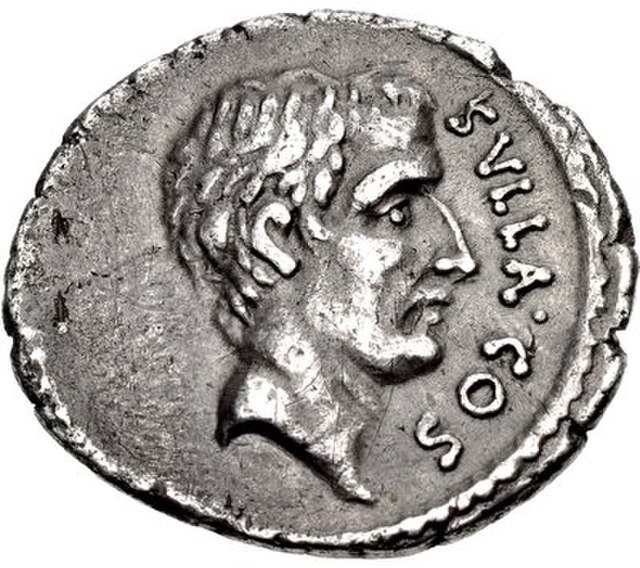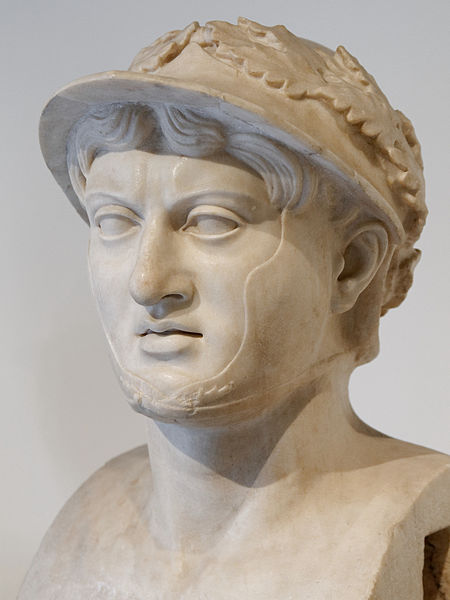Lucius Cornelius Sulla Felix, commonly known as Sulla, was a Roman general and statesman. He won the first large-scale civil war in Roman history and became the first man of the Republic to seize power through force.
Portrait of Sulla on a denarius minted in 54 BC by his grandson Pompeius Rufus
Denarius minted in Rome, portraying Sulla's first great victory, in which he ended the Jugurthine War. The front depicts Diana wearing a cruciform earring, a double necklace of pearls and pendants, and jewels in her hair, pulled into a knot; crescent above, lituus behind. The reverse shows Sulla seated on a raised seat with a bound Jugurtha kneeling beside him; before him kneels Bocchus, offering an olive branch.[citation needed]
Depiction of Marius as victor over the invading Cimbri.
So-called "Sulla", a copy (probably from the time of Augustus) after a portrait of an important Roman from the second century BC, with similarities to the so-called "Marius", suggesting that both statues were conceived and exhibited together as either siblings or rivals; Munich, Glyptothek.
The Roman Republic was the era of classical Roman civilization beginning with the overthrow of the Roman Kingdom and ending in 27 BC with the establishment of the Roman Empire. During this period, Rome's control expanded from the city's immediate surroundings to hegemony over the entire Mediterranean world.
Roman Republic
The "Capitoline Brutus", a bust possibly depicting Lucius Junius Brutus, who led the revolt against Rome's last king and was a founder of the Republic.
Bust of Pyrrhus, found in the Villa of the Papyri at Herculaneum, now in the Naples Archaeological Museum.
Coin of Hiero II of Syracuse








